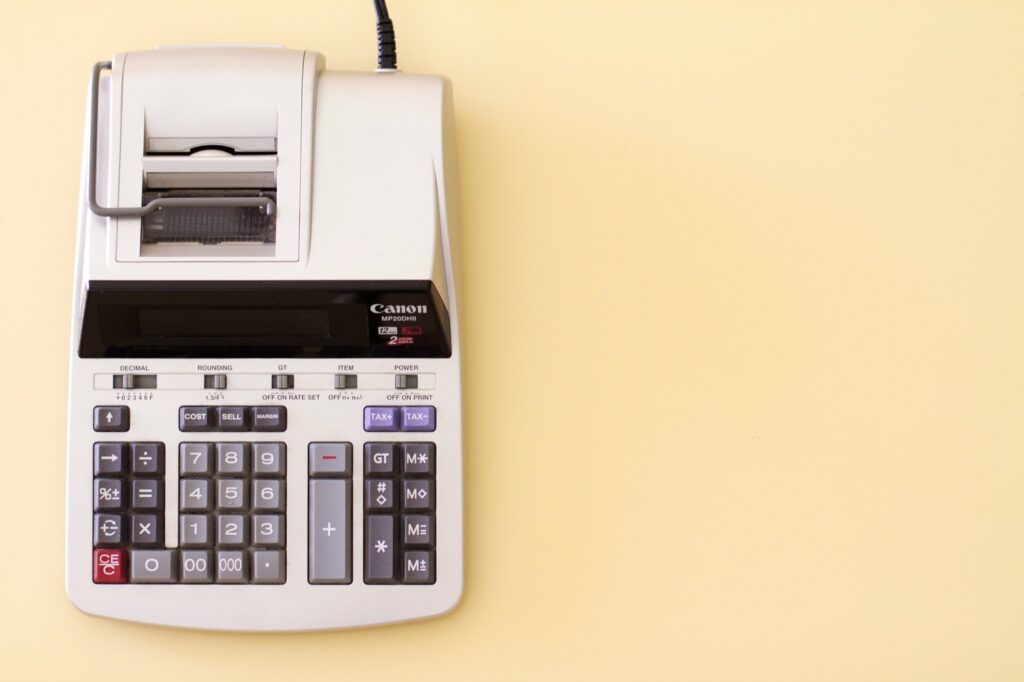10 Business Expenses That Are Not Deductible
Rebecca Casarez, CPA

When a business files its tax return, deductible business expenses are subtracted from its income to calculate taxable income. This means that legitimate deductible business expenses reduce a company’s tax liability. Intelligent tax planning includes maximizing these deductions in order to minimize the tax bill from Uncle Sam.
IRS rules state to be deductible a business expense must be both ordinary and necessary. An expense is ordinary if it is commonly found and accepted in your particular trade or business. It is considered necessary if it is deemed helpful and appropriate for your particular trade or business.
Unfortunately, not all business expenses are deductible. If an expense falls outside of the IRS definition or is considered an exception to the rule, the expense would be treated as non-deductible and would not decrease your tax liability.
10 Common Business Expenses That Are Non-Deductible.
1. Government Fines and Penalties
Any type of fine or penalty the business incurs is not deductible. This includes late fees or penalties on payment of any federal or state taxes, safety or environmental violation fees, or tickets for parking or moving violations related to the business.
2. Commuting Costs
If you incur costs traveling to different customers throughout the day, those costs are deductible. Costs incurred traveling from home to work and then from work back to home are not deductible regardless of the distance. If you want to learn more about how travel expenses are deductible, check out this article.
3. Costs For Personal Use
Any costs incurred for a personal activity are non-deductible for business purposes. Examples would be your vehicle or telephone. If these items are used solely for business purposes, then they may be partially deductible.
However, if you use the phone for personal use or you use the vehicle to take your kids to their soccer games, those costs are not deductible and should be tracked separately. This is one area where it pays for a small business owner to track expenses separately.
4. Political Contributions
Political contributions are never tax deductible.
5. Illegal Activities
It goes without saying that any payments made related to illegal activities are never deductible. This includes paying employees who are not legally able to work, or amounts paid for bribes or kickbacks for example.
6. Meals (50%)
Part of business includes discussing issues with clients over a meal. With very few exceptions, only half of your meal expenses for business are tax deductible. Check out this article where we discuss deducting meals in more detail.
7. Work Clothes
Some jobs require specialty clothing such as a uniform, steel-toed shoes, or a hard hat. In these cases, these business expenses may be deductible.
For any normal type of business wear such as suits, ties, dresses, shoes, etc… you have to pay for these on your own and those expenses are not deductible.
8. Entertainment
Entertaining customers is very common in business. This includes expenses related to sports tickets, concerts, golf outings, etc. Networking is important and a cost of doing business, however, no expenses deemed entertainment are tax deductible.
9. Employee Moving Expenses
Companies, including small business owners, want to attract the best talent. Sometimes that talent resides in a different state. To help convince the employee to take the job, a company may offer to pay for moving expenses.
Although providing this benefit can help a business attract the best talent, all amounts paid to help the employee move are non-deductible.
10. Club Dues
Clients are often entertained by using various clubs as a social activity. Examples would be a golf club or a gym. Expenses incurred at the club during a particular client interaction may be deductible (such as 50% of a meal at the clubhouse) but payments for the club dues are not deductible.
It is not an easy task to remember which business expenses are fully deductible, partially deductible, or never deductible. As a small business owner, you should keep very detailed records of all of your business expenses. Identify each expense as deductible or not so you are ready for tax season when it comes and there will not be any surprises.
It is also in your best interest to keep your personal and business expenses completely separate. The small amount of extra bookkeeping to accomplish this far outweighs the cost and headache of unraveling the two when it is time to prepare your tax return. Your tax accountant will thank you!
UPDATE: The COVID-19 Relief Bill, signed by the President on December 27, 2020, made changes to deductions for business meals in tax years 2021 and 2022. Businesses will be permitted to fully deduct business meals that would normally be 50% deductible. Although this change will not affect your 2020 tax return, the savings will offer a 100% deduction in 2021 and 2022 for food and beverages provided by a restaurant. The objective of the temporary deduction is to stimulate the restaurant industry. In the list of examples below, we’ve indicated those deductions which will change between 2020 and 2021.
Source: IRS.gov
Disclaimer:
This publication is designed to provide information on federal tax and accounting laws and/or regulations. It is presented with the understanding that the author is not rendering legal or accounting services.
This text is not intended to address every situation that arises or provide specific, strategic tax and/or accounting planning advice. This text should not be used solely to answer tax and/or accounting questions and you should consult additional sources of information, as needed, to determine the solution to tax and/or accounting questions.
This text has been prepared with due diligence. However, the possibility of mechanical or human error does exist and the author accepts no responsibility or liability regarding this material and its use. This text is not intended or written by the practitioner to be used and cannot be used by a taxpayer or tax return preparer, for the purpose of avoiding penalties that may be imposed.
Call To Action (Taxes)
Don't forget to share this post!
Related Articles
Copyright 2023 © ProAdvisor CPA
All Rights Reserved
Privacy Policy – Terms and Conditions
ProAdvisor CPA is an active, registered, & licensed Certified Public Accounting firm that abides by the strict regulations of the State Board of Accountancy.





